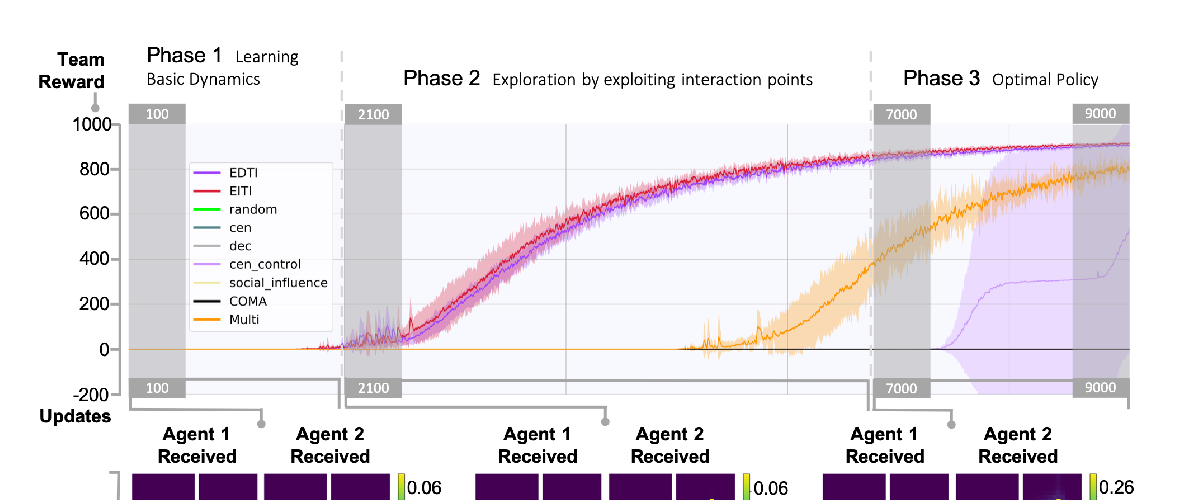Abstract:
Exploration in sparse reward environments remains one of the key challenges of model-free reinforcement learning. Instead of solely relying on extrinsic rewards provided by the environment, many state-of-the-art methods use intrinsic rewards to encourage exploration. However, we show that existing methods fall short in procedurally-generated environments where an agent is unlikely to visit a state more than once. We propose a novel type of intrinsic reward which encourages the agent to take actions that lead to significant changes in its learned state representation. We evaluate our method on multiple challenging procedurally-generated tasks in MiniGrid, as well as on tasks with high-dimensional observations used in prior work. Our experiments demonstrate that this approach is more sample efficient than existing exploration methods, particularly for procedurally-generated MiniGrid environments. Furthermore, we analyze the learned behavior as well as the intrinsic reward received by our agent. In contrast to previous approaches, our intrinsic reward does not diminish during the course of training and it rewards the agent substantially more for interacting with objects that it can control.


